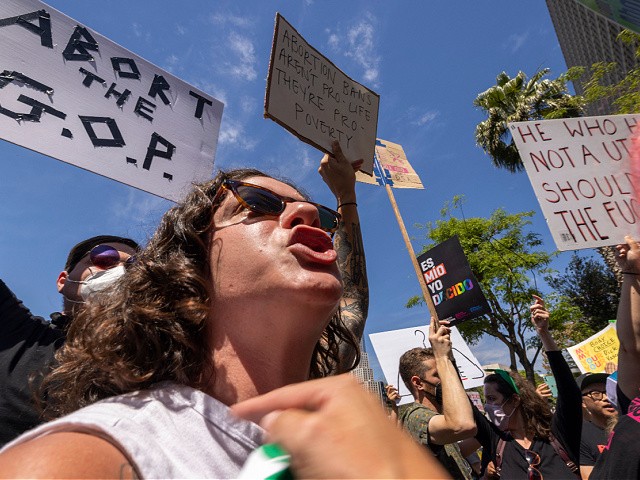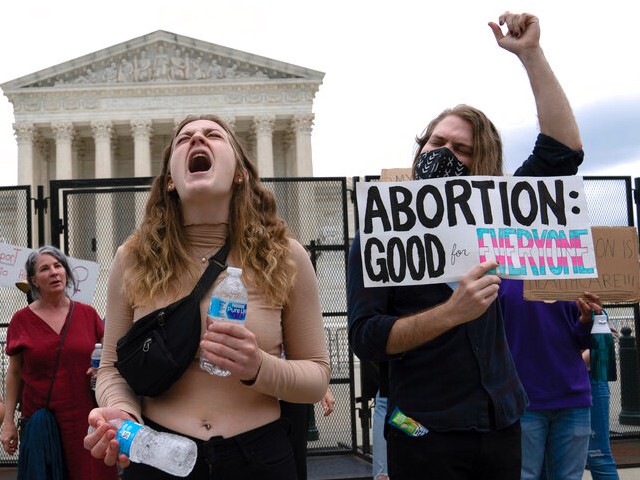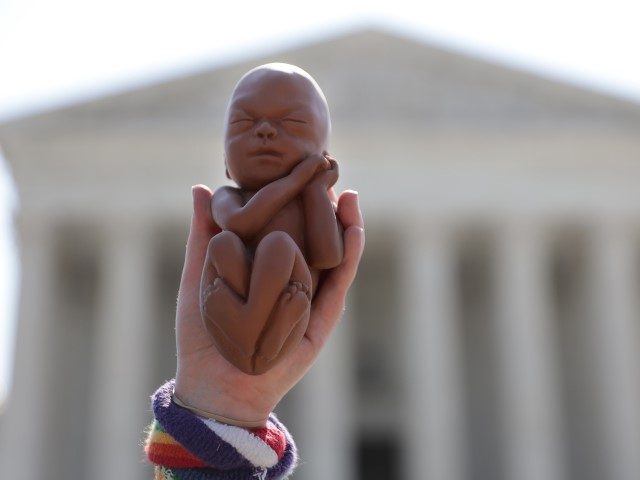The Department of Homeland Security is concerned about a possible surge in violence when the Supreme Court decision expected to overturn Roe v. Wade is formally announced. The Justice Department is providing protection for the Justices whose homes have been the site of protests and who have been overtly threatened on social media.
The potential end of blanket legal abortion at the federal level has half the nation in a ferocious frenzy, but what I bet few of the “Summer of Rage” abortion promoters understand is that Roe v. Wade has long been recognized as a terrible decision, inventing rights that had no basis in the Constitution.
If the leaked decision written by Justice Samuel Alito is released, as expected, it will correct a wrong that has been allowed to stand for nearly 50 years, claiming the lives of more than 63 million unborn children and harming untold millions of their mothers, fathers, grandparents, and siblings.
Justice Alito’s opinion is brilliant, but what our pro-abortion brothers and sisters probably don’t realize is that it rests on the shoulders of past Supreme Court justices who recognized the folly of Roe, its companion decision, Doe v. Bolton, and 1992’s Casey vs. Planned Parenthood, which invented the nebulous standard “undue burden.”
Two dissenters in all three cases were Justice William Rehnquist (later, chief justice) and Justice Byron White. They were joined in dissent in Casey by the late Justice Antonin Scalia and Justice Clarence Thomas.

Abortion rights supporters confront Bible Believers, a group of anti-abortion activist street preachers, in Los Angeles, California, on May 14, 2022. (DAVID MCNEW/AFP via Getty Images)
Although at least one biographer has written that White was personally pro-choice, according to the Atlantic, he was a firm believer in refusing to invent constitutional rights that were not contained in the U.S. Constitution.
Justice White wrote in his dissent:
I find nothing in the language or history of the Constitution to support the Court’s judgment. The Court simply fashions and announces a new constitutional right for pregnant mothers and, with scarcely any reason or authority for its action, invests that right with sufficient substance to override most existing state abortion statutes.
He continued:
As an exercise of raw judicial power, the Court perhaps has authority to do what it does today; but in my view its judgment is an improvident and extravagant exercise of the power of judicial review that the Constitution extends to this Court.

Abortion rights activist protest outside of the U.S. Supreme Court Thursday, May 5, 2022 in Washington. (AP Photo/Jose Luis Magana)
In deciding Roe, seven justices declared, among other things, that the Due Process Clause of the Fourteenth Amendment provides a right to privacy that includes a woman’s decision to have an abortion. But as Alito points out in his leaked opinion in the Dobbs case, when the Fourteenth Amendment was ratified in 1868, 28 of 37 states had made abortion a crime throughout pregnancy. The other nine states criminalized abortion by 1910.
In his dissent in Roe, Justice Rehnquist noted the same divergence:
To reach its result, the Court necessarily has had to find within the scope of the Fourteenth Amendment a right that was apparently completely unknown to the drafters of the Amendment… By the time of the adoption of the Fourteenth Amendment in 1868, there were at least 36 laws enacted by state or territorial legislatures limiting abortion.
How could you have a state passing a law prohibiting abortion while at the same time ratifying an amendment that allegedly protects abortion? That defies reason. Those ratifying the amendment could never have imagined how it would be misused in the future.
Much of what Alito wrote in the draft opinion is what his predecessors — and in this I include his contemporary, Justice Thomas — understood in 1973 and had an opportunity to explain again in the 1992 Casey decision. It is way past time for the American people to understand what is and is not in our Constitution.
And as angry abortion advocates continue to throw a temper tantrum in the streets of America, let us, as the peaceful and compassionate advocates for life that we have always been, likewise take to the streets in prayerful gatherings, mourning the tens of millions of victims, and thanking God that our country has taken a major turn towards the culture of life.
Father Frank Pavone is national director of Priests for Life and the national pastoral director of Rachel’s Vineyard Ministries and the Silent No More Awareness Campaign.

COMMENTS
Please let us know if you're having issues with commenting.